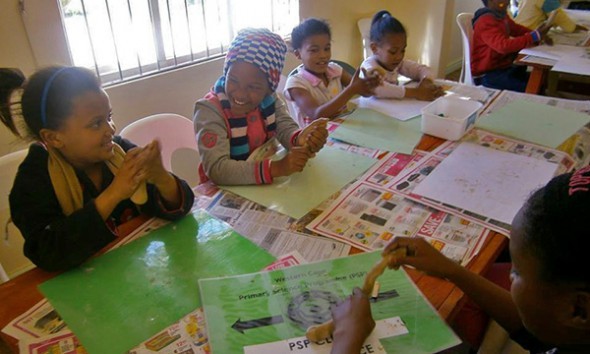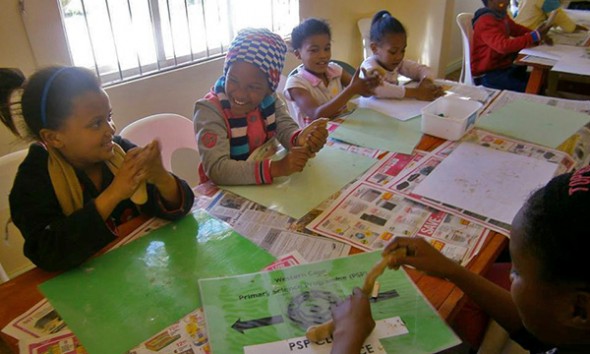
Teacher mentor programme wins international award
A non-profit organisation that works with teachers in the Western Cape’s poorest areas to improve the quality of teaching and learning in maths and science is getting international recognition. The Western Cape Primary Science Programme (PSP), with over 30-years’ experience in the field, received the Global Best award for science, technology, engineering and maths in […]

A non-profit organisation that works with teachers in the Western Cape’s poorest areas to improve the quality of teaching and learning in maths and science is getting international recognition.

The Western Cape Primary Science Programme (PSP), with over 30-years’ experience in the field, received the Global Best award for science, technology, engineering and maths in Africa from the International Education Business Partnership Network (IPN).
It was the second consecutive year PSP received the award, given for its professional development work with teachers. The organisation presented its work at the 12th IPN Conference, held in Brussels in September with the theme, Youth Employability. Delegates from around the world shared their ideas, experiences, and efforts to improve youth employability through partnerships between business and education.
Brimstone Investment Corporation helped to fund PSP’s presence at the conference.
PROFESSIONAL COMPETENCE
PSP develops the professional competence and expertise of primary (or elementary) school teachers. It focuses primarily on teacher development in the subjects of natural sciences, mathematics, languages, social sciences and environment. It works with over 1 000 teachers a year, using what it calls a Joint Mentorship Programme.
This model gives a two-year cycle of support for first-time teachers. The main components of the programme are: training to build novice teachers’ content and concept knowledge, intensive classroom mentoring and coaching to strengthen their teaching practice, and the supply of resources to enrich their teaching and learning in the classroom.
Zorina Dharsey, PSP’s director, said: “The [Joint Mentorship Programme] model of specific, targeted support sparked much interest at the conference, and we received many positive comments regarding future roll-out. There was also great enthusiasm about the TeachSmart handbook. It was most gratifying and encouraging.”
TeachSmart grew out of the work of the JMP, capturing and disseminating key points to a wider audience of novice teachers and schools. “We observed that critical support provided to new teachers made all the difference, helping them connect pre-service theory with the context of practice more efficiently. The process helps to fast-track their professional adjustment in schools. This way positive teaching and learning in classrooms is maximised in the long term for [pupils].”
While in Brussels, PSP officials noted that challenges around youth employability were not unique to South Africa; many other countries, including France and Canada, face similar challenges.
TEACHSMART HANDBOOK
PSP launched its TeachSmart handbook earlier this year to emphasize the importance and value of mentorship for first-time teachers. The handbook is packed with practical information and handy tips designed to help first-time teachers succeed from the start.
Teacher retention is a growing problem – both in South Africa and around the world – the causes of which are complex. PSP has found, however, that access to the right support and resources for novices during this crucial period in a teacher’s career can make a big difference.
“New teachers need the right professional and personal support, but in our experience, too many do not receive it,” Dharsey said. “Faced with the realities of the classroom, early enthusiasm can rapidly turn to demoralisation and frustration. But we believe that resources like TeachSmart and universally available mentoring programmes can prevent this from happening and provide a platform for success.”
The handbook contains a range of tested, hands-on resources, such as sample teaching aids, model lesson plans and school policy templates. It also offers practical advice for school senior management teams on how to deliver effective induction and support programmes for novice teachers.
By: Ray Maota
Source: www.playyourpart.co.za
